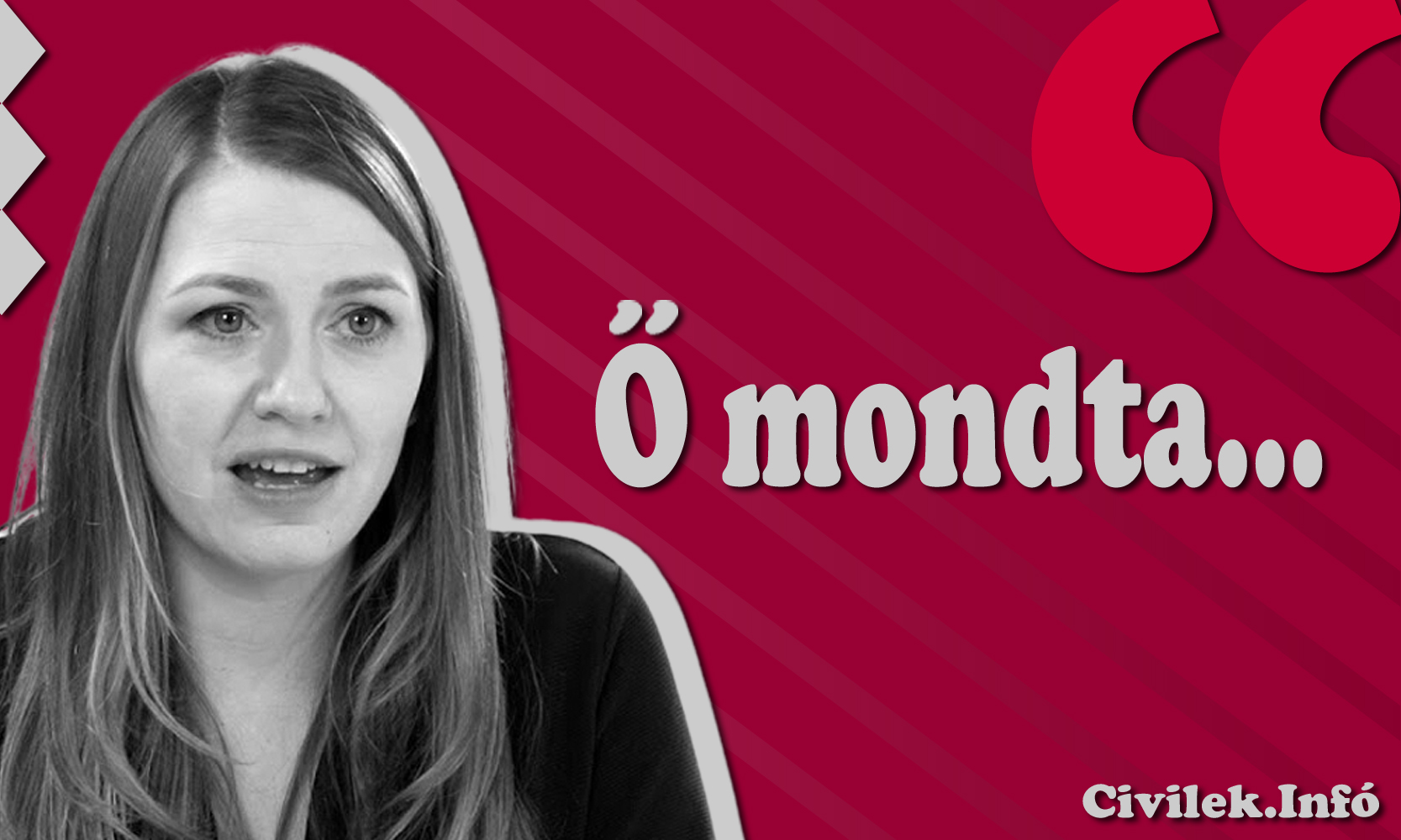Unfortunately, one can come across countless cases similar to that of the former minister, says Tímea Boglacsik, an expert on relationship violence. Interview.
On Tuesday morning, Judit Varga published a very strong post on her social media page, in which she writes about the abusive actions of her ex-husband. How should such a story be interpreted?
I think that in the helping profession, especially when we are talking about victims, we cannot question what they say, but at the same time, in a case of this magnitude, the person making the statement (and of course the alleged perpetrator as well) has an extremely high responsibility, since many victims also monitor the events. In the current situation, it is still difficult to formulate a clear professional opinion, since it is a question of a much larger tension of forces and interests for and against than in an "ordinary" case. The post has a strong effect on emotions, it makes serious accusations, and we can imagine the scene described in it.
Does the public give-and-take between Péter Magyar and Judit Varga change anything about the assessment of the post?
The "give-and-take" that takes place in public is especially suitable for dividing and polarizing society, and unfortunately it can also be suitable for amplifying the voices that question the credibility of the victims, and even more so the victim blaming. On the other side, we can encounter stigma and accusations. These are exponentially not good for the cause of relationship violence.
In many cases, the problem is not easy to judge anyway, but when the two parties are in complete contradiction with each other and a variety of interests dominate, there should be a (specialist) person on your feet who will stand confidently on either side.
What do you think about the events described in the post?
The story described in the post also describes verbal, mental and physical abuse, and is a good example of the victims' coping strategy, or rather avoidance. Judit Varga believed that by remaining silent she could overcome this crisis first, and it seems that, unlike most similar situations, the "method" was successful here.
However, silence is not necessarily a good message for victims. It suggests that the abused should choose tactics that can be used to avoid a conflict for which he is not responsible.
The text of the post could be analyzed more deeply, regarding the dynamics of abuse, exit attempts or blackmail, in any case, I think that
we can see a textbook example of abuse described, unfortunately there are countless such cases.
What are the characteristics of an abusive person?
Insistence on power and control, not accepting to say no, but this can also include when the abuser shapes things in such a way that the victim starts to feel guilty for the situation, whereupon the abuse is reframed by reframing the concept and meaning of love.
Why did Judit Varga get stuck in such a relationship? What characterizes abusive relationships?
There are many answers to the question "why did he stay", but we must avoid the tone of blaming the victim. I don't know what kept Judith Varga from leaving what she considered to be an abusive relationship earlier, but the reasons why victims usually stay are typically very real life things.
Extortion by taking away the children - or any other kind - economic dependence on the abuser, threats, uncertainty about the future, fear of the abuser's or the environment's reaction, perhaps the children's attachment to the abuser, and of course the belief that the perpetrator then it changes and we can get back the person we once knew and loved.
Can the victim's environment do anything?
I believe that the victim's environment can do something to ensure that the victim can get out of such a situation safely.
In the event that the abused takes on the problem, they can support and help him, as far as possible, on the way to a solution (providing safe housing, a supportive presence while dealing with matters, possibly providing financial support, spiritual support, etc.), and if the time has not come for the victim to open up, but we suspect that such a problem may be behind it, we can let you know that if he is ready to tell what happened to him, we stand by him. Of course, we should not force help, we cannot interrogate the victim, because this can very quickly lead to a loss of trust and even greater withdrawal and isolation.
At the same time, I would like to draw attention to the situations in which relationship violence is clearly realized. This can be the case if we hear fights or loud noises in the neighborhood, or if we experience child abuse. In an acute situation, the phone number 112 should be dialed, and in case of suspicion, the child welfare and family support service should be notified in the case of minors or the elderly. In the case of children, this would also be our duty, since we are actually all members of the child protection alert system.
What does the fact that the ex-husband - who is the subject of the post - reacts with a laughing emoji during the post about the case and the previous video of partner abuse?
I think that in this case, Péter Magyar wants to confirm his opinion regarding the slander he formulated and to express that he finds these stories ridiculous. However, if it is proven that these cases really happened, these reactions may gain a new interpretation, which may be suitable for mocking the problem and the victims.
Featured image: Illustration / Nino Carè / Pixabay












